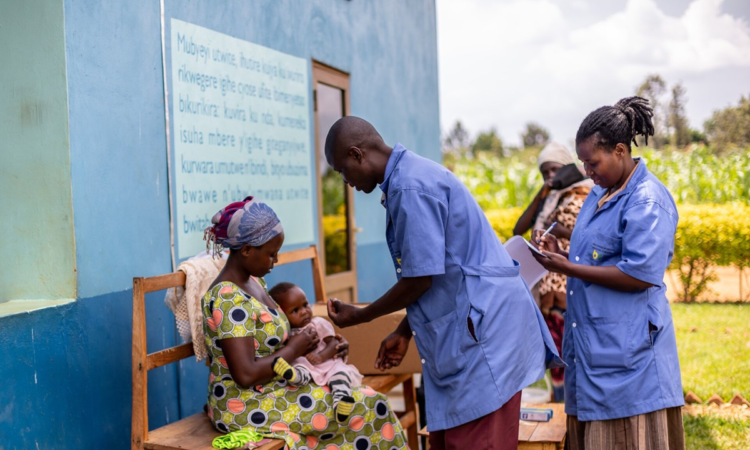Universal Health Coverage Day 2023 focuses on building resilience of health systems – World Health Organization (WHO)

On Universal Health Coverage (UHC) Day, WHO is calling on governments to prioritize investments in building resilient health systems to safeguard the health and well-being of all people, everywhere.
In an increasingly turbulent world, climate change, emergencies and other shocks will take an even greater toll on health systems and the people who need them most. Over 40% of people in the world already live in areas highly susceptible to climate change. Over a quarter of the global population live in settings affected by protracted conflict, poverty and lack of access to basic health services.
Global humanitarian needs have reached record levels with 360 million people in need worldwide. At the same time, half the world’s population is not fully covered by essential health services and 2 billion people face financial hardship or are impoverished due to out-of-pocket health spending. Without urgent action, these gaps will only widen.
“WHO was born 75 years ago on the conviction that health is a human right. And the best way to realize that right is universal health coverage,” said Dr Tedros Adhanom Ghebreyesus, WHO Director-General. “Investing in resilient health systems, based on strong primary health care, is the most inclusive, equitable and cost-effective path towards universal health coverage.”
Health systems that can respond to shocks and withstand pressures are crucial to effectively reduce the world’s disease burden and avert the millions of additional deaths each year that are expected as a result of the climate crisis, avoidable environmental risks and complex health emergencies.
WHO is working with countries to reorient health systems towards a primary health care (PHC)—an approach that can help deliver 90% of essential health services while saving 60 million lives by 2030—to accelerate progress towards UHC.
WHO and partners also held a series of events dedicated to UHC Day on 11 December.
A 100-day youth-led advocacy campaign to engage parliamentarians to deliver on the promise of Health for All kicked off at a town hall meeting hosted by the WHO Youth Council, UHC2030 and the Inter-Parliamentary Union. The event provided an opportunity for young people to pose questions about UHC reforms to a panel of parliamentarians from around the world, and to share perspectives on what is needed to drive action toward UHC in countries.
In 2019, the Inter-Parliamentary Union adopted a historic resolution, calling on lawmakers to accelerate action towards UHC.
WHO launched a new Global Health Expenditure Report and database which shed new light on the evolution of global health spending at the height of the COVID-19 pandemic and what lessons can be learnt to future-proof health systems.
The report reveals that in 2021 global spending on health reached a new high of US$ 9.8 trillion or 10.3% of global gross domestic product (GDP). Nevertheless, the distribution of spending remained grossly unequal. In 2021, about 11% of the world’s population lived in countries that spent less than US$50 per person per year, while the average per capita spending on health was around US$ 4000 in high-income countries. Low-income countries accounted for only 0.24% of the global health expenditure, despite having an 8% share of the world’s population.
WHO, the World Bank and the British Medical Journal (BMJ) launched a new collection of articles on quality of healthcare. The collection emphasizes that health service quality must be a priority, not an afterthought, including during emergencies. The authors share experiences and proven solutions, and call for greater investment and political attention to quality issues–not just access—as a cornerstone of universal health coverage.
Universal health coverage means that all people can access the health services they need, without financial hardship. Through a new political declaration on UHC in September 2023, world leaders committed to redouble their efforts to achieve UHC by 2030. These commitments must now be turned into investments in resilient health systems.
Note to editors
Media Contacts
WHO Media Team
World Health Organization
Related
News
Feature stories







